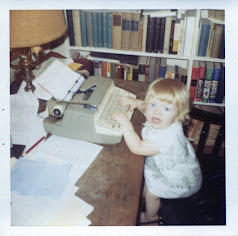I returned home and a week later was visited at home by Dean Fleck, bearing this message from Dr. Sprague: "Come on down with your $90 and we will see you through". Of the fortuitous happenings in my life, this was #2. #1 was Malachi Glennon telling me to get out of the mines.
So, having left Pittston High School at the end of my Sophomore year, 5 years later, at the age of 21, I was admitted to Wyoming Seminary as a member of the Junior class. I had difficulty only with 3rd year Latin. I was just too rusty to pick it up, so after a two week trial Dean Fleck suggested that I switch to first year Greek. I did so and thereafter had no trouble with any of my courses. My age was no embarrassment as there were others of my age at Wyoming--wonderful fellows, many virtually plucked out of the coal mines, given jobs firing the steam boilers, working in the laundry, cleaning classrooms. Several like Andy Salata and Joe Donchess became first class football players at Wyoming and later in college. In those days Wyoming seldom lost a football game. I was given a job waiting on table, 3 meals a day, in the school dining room. Pocket money and money for books I earned at odd jobs such as tending Mrs. Butler's furnace in Forty-Fort, a 2-mile hike before breakfast, and vacuuming her house carpets on Saturday morning.
In the Spring of my Junior year as I was leaving daily chapel, Dr. Sprague, from his position behind the pulpit, pointed at me and said, "Thompson, I mean Matthews, did I tell you that you can have the bellringer job next year; well you have it". In my two years at Wyoming, Doc Sprague never got my name right; it was always "Thompson, I mean Matthews." [The bellringer job] was great news. It covered tuition, room and board' "room" was a two-room suite on the top floor of the men's dorm, right under the belfry tower. The bell rope came down into a closet located in the living room. The job was to ring the bell to announce everything from 6:30 get out of bed to 10:00 pm time to get to bed, and lights out, also the beginning and end of each class, daily chapel, meals and study hall. In addition, I was to climb to the top of the Chapel Tower each Saturday to wind and oil the clock mechanism housed there. But it also meant eating at table in the dining hall and free time to devote to extra-curricular activities such as dramatics, a vocal quartette and the editing of the school yearbook "The Wyoming".
All students were required to take a once-a-week course in public speaking. Preparation consisted of reading a short article in a magazine and then using it as a topic for a speech. No notes were permitted. Once you were called upon, you were on your feet and on your own. Some of the speeches on the outlawry of war (remember--World War I had just ended) interested me that I joined a group of fellow students who spoke on that subject in churches up and down the Valley.
Boarders who made their honor roll were permitted to study in their dormitory rooms; those who did not were required to study until 9:30 pm in a faculty supervised room in Nesbitt Hall. In my Senior year my extra-curricular activities, especially Editorship of the yearbook, resulted in my landing in Study Hall. This soon proved to be wasteful as I was imprisoned for two hours there and could have accomplished the same amount of study in one hour in my dorm room. When I complained to Dean Fleck about this and pointed out that I needed that extra hour for other things that could not be accomplished in Study Hall, he agreed and released me on the condition that I get back on the Honor Roll by the next exam period, I did.
Math under Adams, English under Miss Fisk and Trebilcox, History under Wolfe, Dramatics under Miss Scurman and Worth Howard were all enjoyable and contributed much to opening up a new world for me. Then came the question of college. Three members of the faculty were graduates of Wesleyan [in Connectucut]. Two plugged for Wesleyan. Another, a Dartmouth graduate plugged for his alma mater. But Professor Pedro Gillot, my teacher in second year Greek, just assumed that I would go to Wesleyan. He had me on my feet every day parsing, declining, conjugating and admonishing me: "Matthews, I don't want you do disgrace me when you continue Greek at Wesleyan under my old teacher, Professor Heidel". (I did take 4 more years of Greek at Wesleyan and Heidel never asked me to parse anything; all he required was a good translation. At the end of my Senior year he offered me an Assistantship which would have led to an MA degree and I have often wondered how different my life might have been had I accepted, but I was already deep in debt and would have been more so had I accepted, so I declined with thanks).
In the next installment my grandfather shares more about life at Wyoming and preparations for Wesleyan which included, of course, earning money for his tuition and other expenses.























